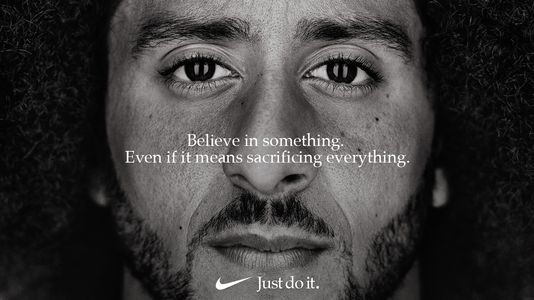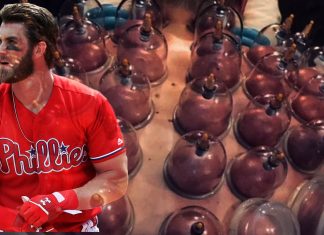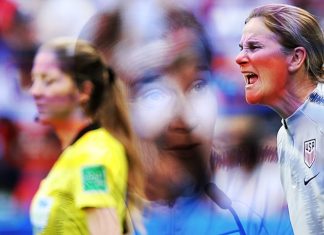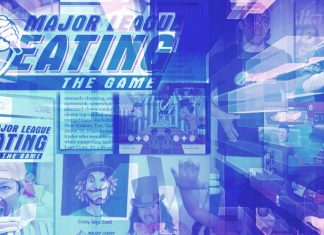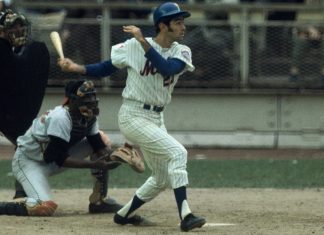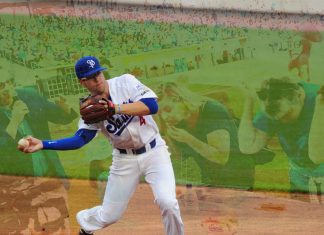With MLB’s 2018 winter meetings kicking off, we’re looking back at the battle between players and ownership for the right to control player movement. In Part 2: United we stand, divided we fall: the Messersmith-McNally grievance.
Morning came much too quickly. It wasn’t my intent to wake up at 7:00am—not after a six-hour flight back to the Big Apple, but there I was, eyes wide open with sunshine flooding in.
“Dammit…,” I muttered out loud. “I forgot to close the blinds again.”
It had become a bad habit. Every single time I would make it home to my dingy Brooklyn flat in the middle of the night I would pour myself a dram of cheap whiskey, smoke half a cigarette and fall right asleep, forgetting to shut the windows.
It was August 1975. I rolled over to the edge of the bed, reached for the ashtray on the edge of the tabouret, grabbed the half-smoked cigarette and dangled it from my lips, and laid there.
“It’s too early and too muggy to light this.”
August is the worst month in New York City. You can’t escape the sweat drenching heat, and it makes smoking near impossible.
I slowly dragged myself out of bed, splashed some water on my face, ignoring the several days old five o’clock shadow, threw on a clean shirt, and headed out to the union office.
After the Supreme Court killed Curt’s lawsuit for free agency, I had stayed on with the MLB Players Association and moved to New York from St. Louis. In May of 1972, we secured a collective bargaining agreement (CBA) and Marvin (Miller) made sure it was “carefully worded in regard to the reserve clause” and Curt’s pending litigation.
Marvin didn’t agree to the reserve clause. The contract was settled despite the unresolved reserve clause issue, and it was made clear after Curt’s case was settled that the union would reopen negotiations around the reserve system. Gaining independent arbitration was a big win, too. The less power in the hands of the Commish, the better.
It also gave us the ability to argue the meanings and interpretation of a contract provision through binding arbitration, and allow a neutral third-party figure out its intended meaning and enforcement.
As I snaked my way through the early morning Manhattan foot traffic, side-stepping and barely dodging awe-struck tourists, I couldn’t help but dwell on how much I hated Paragraph 10(a) in the players uniform contract; I knew Marvin despised it too.
As I pushed through the union office doors, off 49th Street and Fifth Avenue, I paused to take a deep breath…
“You look like hell,” Marvin said as he casually strode by.
“I know…it was a long night and early morning. Anything interesting on today’s docket?”
“Too early to tell, but I feel a fight coming up.”
No sooner had I sat down at my corner desk when Andy Messersmith’s call came in.
Turned out the 38-year-old right-hander from New Jersey was blown away after finding out he’d been traded from the Angels—where he enjoyed five good production seasons—to the Dodgers at the start of 1974. It was a one year, $90,000 deal. It was his year. Messersmith led the league in wins, 20, with a .769-win percent. As the ’75 season approached, Messersmith and Dodgers owner Walter O’Malley were nowhere near reaching a deal. Each had different salary expectations.
After going back and forth, the “we can’t give into such outlandish salary demands” excuse won out, O’Malley went ahead and renewed the ’74 agreement with just a slight salary increase. Messersmith refused to sign and I don’t blame him.
Now there’s one owner I couldn’t stand.
Yes, he was instrumental in signing Jackie Robinson and breaking the color barrier (Jim Crow) in professional baseball, but so was the Daily Worker and the countless other Negro sportswriters. And that doesn’t excuse him from moving the Dodgers from Brooklyn out to sunny California and displacing countless Mexican-American families to make room for a brand-new ballpark.
I got lost in my own thoughts and tuned back in as the phone call was ending.
“I’m sorry I didn’t tell you about the negotiations sooner Marv,” Messersmith said. “I feel awful and I want to file a grievance over this, but if they come back with a decent offer I’ll have to accept.”
If he did that there would be no grievance, and our next chance at securing free agency would vanish.
“It’s ok…it’s ok…you do what you feel is in your best interest. We’d never hold that against you.”
“Thanks Marv. I’ll make sure to keep you posted.”
I let a few moments of silence pass before speaking up. “Hey chief,” I said. “Where do you want to go from here?”
Marvin looked up from his desk, his dark brow furled with a look of soul-searching intensity.
“Get me all the records of players currently not signed,” he said as he gripped his glasses with his left hand and dropped it off to the side.
I walked back in holding a banker’s box full of files two hours later. We sat in silence flipping through paperwork, scanning each with surgical precision.
“Ok, it looks like Dave, Dave McNally, is the only other unsigned player now…he pitched 13 seasons for the Orioles but was traded to the Expos early this year and up and left baseball.”
“Do we know where he is or how to reach him?”
“He’s working at a Ford dealership in Montana, and he’s the perfect player to help challenge the reserve rule; a good union man and player rep. And, he’s immune to retaliation at this point.”
Marvin gave him a call. After a few minutes, Dave was on board. “If you need me, I’m willing to help.
Once the word was out on our backup plan, the Dodgers went ahead and refused -Messersmith’s “no-trade” contract proposal. We were ready for a fight.
September 28, 1975.
Last day of the regular season. At 11:00 am we filed two grievances. The screaming mad calls came in at 11:15 am. National League President Chub Feeney, in a “sky is falling” moment, went on and on about how disastrous free agency would be, the idea that clubs would bid on players services (talents) could end with “not having a World Series.”
“If Messersmith is declared a free agent, then baseball is dead,” said Dodgers manager Walter Alston. In their mind’s players—human beings—didn’t have the right to make their own professional decisions. What a crock of bullshit.
In response to our two grievances, the Players Relations Committee (PRC) filed a lawsuit in Kansas City asking the court to prevent a hearing on the reserve clause grievance. Owners argued the reserve clause was part of a player’s contract renewal and not part of the collective bargaining agreement.
District judge John Oliver disagreed. He ruled against the injunction and let clubs know if they didn’t like the outcome of the arbitration, or thought the arbitrator had exceeded their authority, they could take it up with the district court.
November 1975
The hearing was set to begin in a few weeks. I walked into the office and was surprised to hear laughter coming out of Marv’s office.
“You’re kidding,” I heard him say.
“Ha! I can’t picture it.”
I peeked my head into his office and waited.
“You’ll never believe it,” said Marv. “John McHale [Montreal Expos president] just ‘happened to be passing through Billings, Montana” and took Dave out for a drink to catch up.”
“You’re kidding…”
“Nope, McHale even offered him a $25,000 signing bonus and $125,000 for playing in 1976.”
“What’s Dave going to do?”
“He’s going to turn it down. He summed it up this way: ‘McHale wasn’t honest with me last year, and I’m not going to trust him again.’”
********
The grievances were being argued before Peter Seitz. He had a good reputation and was professional with a keen legal mind. After 20 years as a full-time arbitrator, he’d seen it all. Marv didn’t like his past decisions, mostly the one against the steelworker’s union when he was their chief economist.
The one ruling that did stand out, however, was his note on the 1969 NBA v NBA Players Association case. The California Court of Appeals found NBA star Rick Barry had the right to sign with the Oakland Oaks of the rival American Basketball Association (ABA) after finishing his one-year option with the San Francisco Warriors.
The NBA uniform players contract was copied from ours, and that interpretation was a good a sign as any.
*********
November 21, 1975
Opening arguments. The first issue presented was the owners’ argument: the issue of the reserve clause outside the arbitrator’s jurisdiction. Each side gave rousing speeches, and by the end of the day, we were recessed for a week.
November 28, 1975
Seitz, after reviewing the opening day transcripts ruled the grievance was arbitrable.
As we got set to resume the proceedings, Lou Hoynes, National League (NL) counsel, asked if MLB commissioner Bowie Kuhn would be allowed a moment to make a statement.
As Marv put it: “Hoynes made it clear Kuhn wanted to appear not as an owners’ witness, but as the lord high commissioner delivering an ‘impartial judgment’ on the union’s foolish case.”
Kuhn’s sermon: “Without a reserve system, our vast array of minor leagues would hardly survive, and it is not hard to imagine that we could even lose a major league.”
Seitz’s reply: “Mr. Commissioner, I don’t doubt your sincerity, but you must understand that the arbitrator’s function is very limited. I’m not empowered to seek solutions to collective bargaining problems, merely to interpret the contract.”
November 30, 1975
Three days went by fast. Looks like we’re all ready to rest our case. I just finished typing up our post-hearing brief. 842 pages. I feel bad for those trees.
Now all that’s left for us to do is wait…
December 23, 1975
Christmas came early.
As we all gathered in MLB’s chief negotiator John Gaherin’s office, Marv made small talk while we waited to Seitz to walk in, a decision in hand.
His decision was 61-pages long. None of us cared for the legal logic or reasoning behind it, we all flipped to the back page to see the ruling.
And there it was in bold beautiful ink: Messersmith and McNally are free to negotiate and sign with other teams.
That was it.
Since 1965 the reserve clause issue had plagued players—it was over.
Marv signed the ruling along with Gaherin who added “dissenting” after his signature. Before the ink dried the owners went ahead and fired Seitz.
“Peter, I’m sorry. I love you dearly, but you’re out,” said Gaherin.
The Players Relation Committee did go ahead and file an appeal in federal district court in Kansas City, Missouri.
Judge Oliver upheld the arbitration ruling.
Marv called Andy after the court’s decision and told him the good news.
“Great! What do I do next?”
“I’m not entirely sure, but for now, let’s wait to see what offers roll in.”
I left Marv sitting at his desk, jotting down notes as he called through the player reps, and found myself once again snaking my way through Manhattan’s foot traffic, onto the subway going towards Brooklyn.
Walking inside and up to my dingy flat, I poured myself a whiskey, lit a cigarette, and closed the blinds.
This fight was over.




